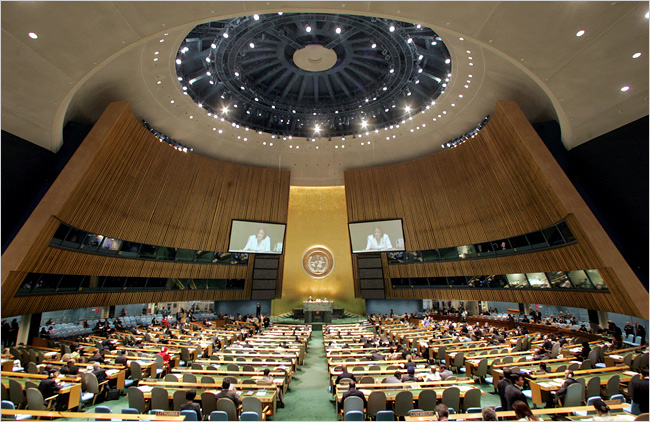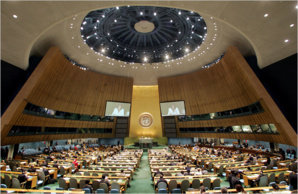Oil: why is it cheaper?
During the past year, the price of a barrel has been remaining low, and obviously ended up with a minus result - from $ 56 to $ 37 per Brent’s varieties. There are several reasons for this. First, trying to keep its world market share and resist American shale oil competitors, Saudi Arabia (the largest exporter) unleashed a price war. The second is that same policies, that complicate relationships within OPEC, resulted in the refusal of Exporting Countries to cut production quotas. This led to excess supply in the market. Third: lifting of sanctions with Iran. It opens access to world exports, which means that the oil market will be even greater. Fourth: the demand is being reduced after the global economy weakened by China's problems. All of this is happening when oil reserves are growing. Finally, investors who carve capitals out of hydrocarbons (oil futures) push down oil prices. All these factors returned oil prices to the level of 2004, while investment in oil production in 2015, according to estimates by the International Energy Agency, decreased critically.
ISIL: how do we prevent the caliphate?
Islamic State is the Islamist group which seized part of the territory of Iraq and Syria, and proclaim the caliphate there (its influence extends to a number of other countries - especially Egypt and Libya). In 2015, the group became one of the world main threats. The terrorist attacks in Paris and the explosion of the Russian airliner over Egypt, claimed to be done by ISIL are giving a pretty clear vision of the terrorists’ doings. Formally, the Western coalition, the Islamic countries, and Russia confront terrorists. However, interests of the parties involved in the conflict are too different to be effective joint action. So far, the terrorists have successfully turned the discord in the coalition in their own favor. However, even Islamic State is finally defeated, in Syria alone there are more than a dozen groups with tens of thousands of followers, ready to take the group’s place.
Renminbi. Why did it weaken?
This summer, the PBOC has made a major devaluation of the currency over the past 20 years, reducing the exchange rate by 1.9%, to 6.2 yuan per dollar. The long-term growth of the world's largest economy (by share of world GDP at PPP) has slowed sharply, affected by fall in exports and investment in fixed assets. In addition, behavior of the Chinese stock exchanges was becoming increasingly reminiscent of a classic bubble, and this year it burst, creating panic in the markets. The currency weakening process continued in December. The last time of the Chinese currency so cheap was four years ago. It didn’t bring a noticeable revival of exports: the GDP growth is planned 7.2% by the authorities of the PRC. Meanwhile, the World Bank estimates it at 6.9% and the OECD - 6.7%, the lowest level since 1990. However, the past year has brought good news to renminbi, too. IMF has included it in the basket of reserve currencies (the decision will come into force on 1 October 2016). In addition, renminbi came in fourth place among the most popular currencies for international payments, ahead of the Japanese yen.
Climate: what will prevent it from changing?
Last year was the warmest in the history of meteorological observations. Climate change aggravated the damage caused by drought, floods and other natural disasters. So this year it was decided to direct more effort and money to combat global warming. In December, the UN World Conference on Climate in Paris has signed the final agreement. It aims to reduce greenhouse gas emissions to the extent, which would lead to an increase in mean global temperature by no more than two degrees by 2100 - that is 80 years after 2020, when the Paris Agreement enters into force, replacing Kyoto Protocol adopted in 1997 and generally recognized as the failed.
Refugees: do they change Europe?
The war in Syria has caused the migration crisis in Europe. The number of applications for asylum in the EU has increased by 150% over the year. 138 000 Syrians, 57 thousand Afghans and 44 thousands of Iraqis are trying to get to Germany, Hungary, Sweden, Italy and Austria. By the end of the year, the flow only intensified. United Nations High Commissioner for Refugees estimated that in the period from November 2015 to February 2016, an average of five thousand people a day will be arriving in Europe only from Turkey. Number of refugees by the end of next year could rise from the current 700 thousand to 3 million or more, the European Commission predicts. All this is a great test of strength for the European humanism and solidarity. Sweden has said it would not provide shelter to all who count on the country. Hungarian authorities see the Syrians and Afghans as "criminals, aggressors and terrorists", which causes condemnation in Brussels. So far, the greatest sympathy for the refugees was shown in Germany, but the tension is growing there, too.
During the past year, the price of a barrel has been remaining low, and obviously ended up with a minus result - from $ 56 to $ 37 per Brent’s varieties. There are several reasons for this. First, trying to keep its world market share and resist American shale oil competitors, Saudi Arabia (the largest exporter) unleashed a price war. The second is that same policies, that complicate relationships within OPEC, resulted in the refusal of Exporting Countries to cut production quotas. This led to excess supply in the market. Third: lifting of sanctions with Iran. It opens access to world exports, which means that the oil market will be even greater. Fourth: the demand is being reduced after the global economy weakened by China's problems. All of this is happening when oil reserves are growing. Finally, investors who carve capitals out of hydrocarbons (oil futures) push down oil prices. All these factors returned oil prices to the level of 2004, while investment in oil production in 2015, according to estimates by the International Energy Agency, decreased critically.
ISIL: how do we prevent the caliphate?
Islamic State is the Islamist group which seized part of the territory of Iraq and Syria, and proclaim the caliphate there (its influence extends to a number of other countries - especially Egypt and Libya). In 2015, the group became one of the world main threats. The terrorist attacks in Paris and the explosion of the Russian airliner over Egypt, claimed to be done by ISIL are giving a pretty clear vision of the terrorists’ doings. Formally, the Western coalition, the Islamic countries, and Russia confront terrorists. However, interests of the parties involved in the conflict are too different to be effective joint action. So far, the terrorists have successfully turned the discord in the coalition in their own favor. However, even Islamic State is finally defeated, in Syria alone there are more than a dozen groups with tens of thousands of followers, ready to take the group’s place.
Renminbi. Why did it weaken?
This summer, the PBOC has made a major devaluation of the currency over the past 20 years, reducing the exchange rate by 1.9%, to 6.2 yuan per dollar. The long-term growth of the world's largest economy (by share of world GDP at PPP) has slowed sharply, affected by fall in exports and investment in fixed assets. In addition, behavior of the Chinese stock exchanges was becoming increasingly reminiscent of a classic bubble, and this year it burst, creating panic in the markets. The currency weakening process continued in December. The last time of the Chinese currency so cheap was four years ago. It didn’t bring a noticeable revival of exports: the GDP growth is planned 7.2% by the authorities of the PRC. Meanwhile, the World Bank estimates it at 6.9% and the OECD - 6.7%, the lowest level since 1990. However, the past year has brought good news to renminbi, too. IMF has included it in the basket of reserve currencies (the decision will come into force on 1 October 2016). In addition, renminbi came in fourth place among the most popular currencies for international payments, ahead of the Japanese yen.
Climate: what will prevent it from changing?
Last year was the warmest in the history of meteorological observations. Climate change aggravated the damage caused by drought, floods and other natural disasters. So this year it was decided to direct more effort and money to combat global warming. In December, the UN World Conference on Climate in Paris has signed the final agreement. It aims to reduce greenhouse gas emissions to the extent, which would lead to an increase in mean global temperature by no more than two degrees by 2100 - that is 80 years after 2020, when the Paris Agreement enters into force, replacing Kyoto Protocol adopted in 1997 and generally recognized as the failed.
Refugees: do they change Europe?
The war in Syria has caused the migration crisis in Europe. The number of applications for asylum in the EU has increased by 150% over the year. 138 000 Syrians, 57 thousand Afghans and 44 thousands of Iraqis are trying to get to Germany, Hungary, Sweden, Italy and Austria. By the end of the year, the flow only intensified. United Nations High Commissioner for Refugees estimated that in the period from November 2015 to February 2016, an average of five thousand people a day will be arriving in Europe only from Turkey. Number of refugees by the end of next year could rise from the current 700 thousand to 3 million or more, the European Commission predicts. All this is a great test of strength for the European humanism and solidarity. Sweden has said it would not provide shelter to all who count on the country. Hungarian authorities see the Syrians and Afghans as "criminals, aggressors and terrorists", which causes condemnation in Brussels. So far, the greatest sympathy for the refugees was shown in Germany, but the tension is growing there, too.






